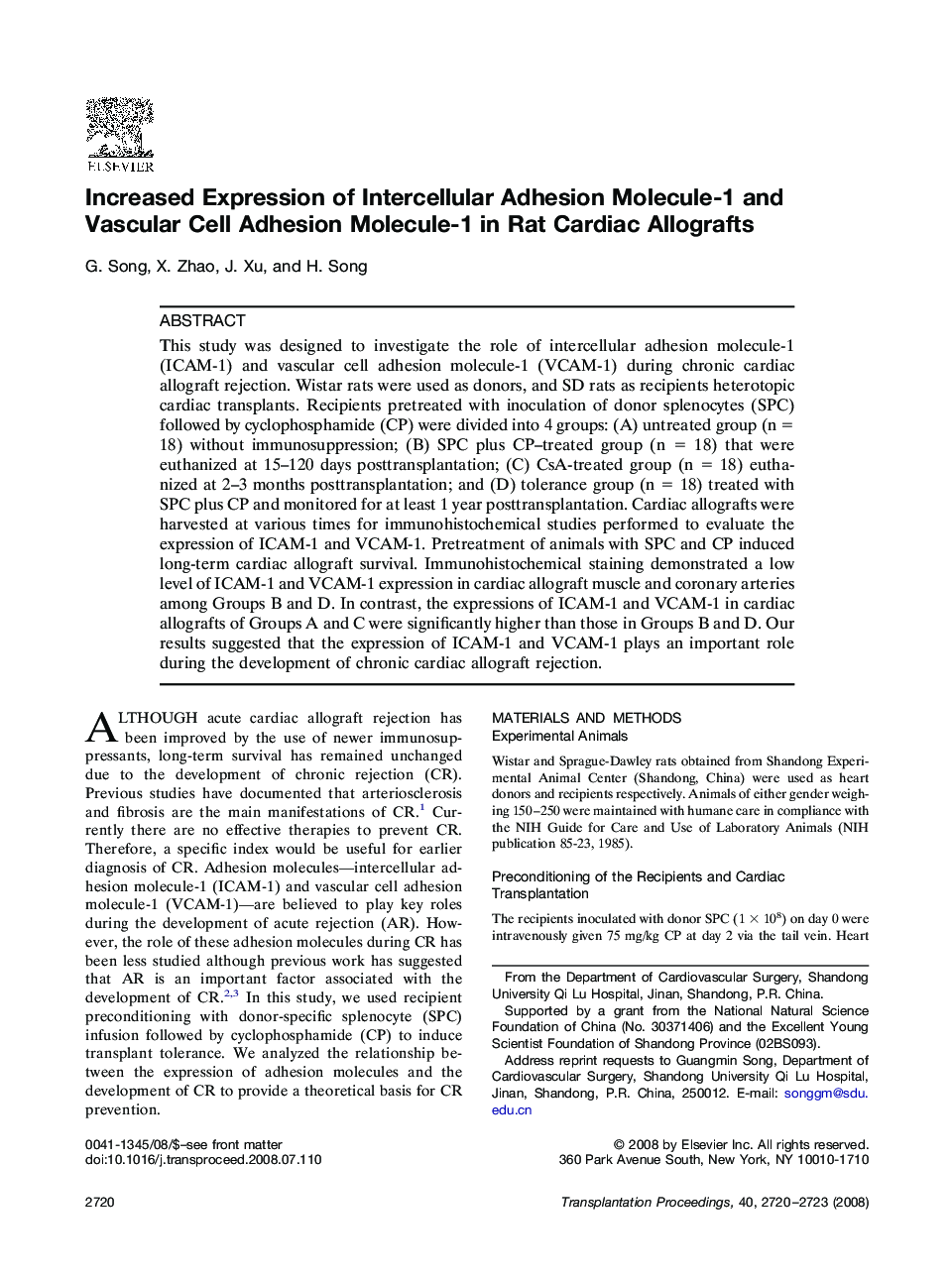| Article ID | Journal | Published Year | Pages | File Type |
|---|---|---|---|---|
| 4262041 | Transplantation Proceedings | 2008 | 4 Pages |
Abstract
This study was designed to investigate the role of intercellular adhesion molecule-1 (ICAM-1) and vascular cell adhesion molecule-1 (VCAM-1) during chronic cardiac allograft rejection. Wistar rats were used as donors, and SD rats as recipients heterotopic cardiac transplants. Recipients pretreated with inoculation of donor splenocytes (SPC) followed by cyclophosphamide (CP) were divided into 4 groups: (A) untreated group (n = 18) without immunosuppression; (B) SPC plus CP-treated group (n = 18) that were euthanized at 15-120 days posttransplantation; (C) CsA-treated group (n = 18) euthanized at 2-3 months posttransplantation; and (D) tolerance group (n = 18) treated with SPC plus CP and monitored for at least 1 year posttransplantation. Cardiac allografts were harvested at various times for immunohistochemical studies performed to evaluate the expression of ICAM-1 and VCAM-1. Pretreatment of animals with SPC and CP induced long-term cardiac allograft survival. Immunohistochemical staining demonstrated a low level of ICAM-1 and VCAM-1 expression in cardiac allograft muscle and coronary arteries among Groups B and D. In contrast, the expressions of ICAM-1 and VCAM-1 in cardiac allografts of Groups A and C were significantly higher than those in Groups B and D. Our results suggested that the expression of ICAM-1 and VCAM-1 plays an important role during the development of chronic cardiac allograft rejection.
Related Topics
Health Sciences
Medicine and Dentistry
Surgery
Authors
G. Song, X. Zhao, J. Xu, H. Song,
